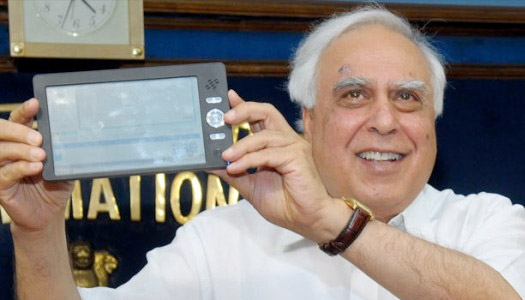
One of the early adoption markets for tablet use, K12 digital textbooks, and a thriving e-commerce site to offer ebooks was India, but recent reports have shown somewhat stagnant responses, which experts have attributed to a lack of reliable wifi and internet connectivity throughout the country, as well as concerns about posting credit card information on unreliable digital infrastructure. But a new multi-billion dollar initiative from the Indian government in conjunction with a major telecom provider may change all that with the institution of free wifi in 2,500 cities across the country.
The Digital India project will create some 50,000 to 60,000 hotspots in various cities, and offer citizens data plans through telecom-provider BSNL. These data plans, which will function in much the same way that consumers currently subscribe to data plans, will offer the free data packages, with the option to purchase additional data each month after the free threshold has been reached.
According to an outline of the project, the goals include:
- Broadband highways to connect all villages and cities of India
- Everywhere mobile connectivity; wherein mobile coverage will be provided to every nook and corner of India
- Public Internet Access Program wherein internet accessibility to the web will be provided at subsidized rates (example public WiFis)
- eGovernance in every government department, wherein 100% paper-less environment will be encouraged
- e-Kranti, wherein government services would be electronically delivered
Information for All policy (which includes provisioning of Right to Information using the Internet as a medium) - Electronics manufacturing
- IT for Jobs
- Early harvest program
How does this affect the publishing industry? Nearly all sectors of publishing have seen lagging adoption–slower than predicted, at least–due to concerns of connectivity. While educational initiatives have put devices in place, retail websites like Flipkart and Amazon India have introduced easy ebook purchasing, and even major self-publishers have brought the platform to authors in India, the lack of internet connection has been blamed for disappointing results in publishing.
Mercy Pilkington is a Senior Editor for Good e-Reader. She is also the CEO and founder of a hybrid publishing and consulting company.
